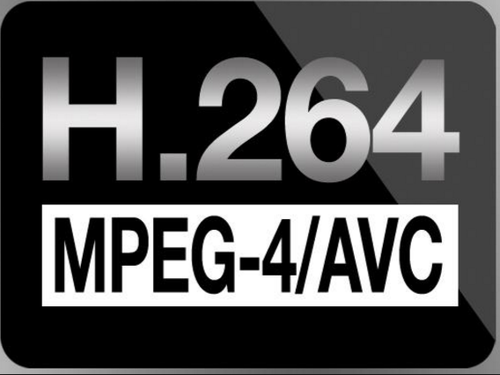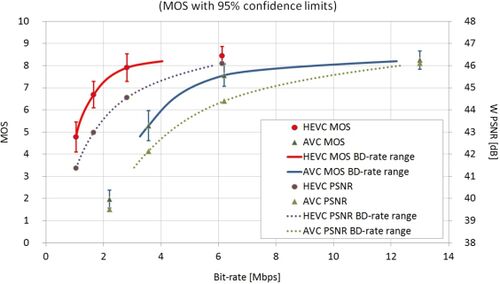Difference between revisions of "Troubleshoot/H264 vs H265"
(→H.264 vs. H.264+ vs. H.265) |
|||
| Line 32: | Line 32: | ||
[[File:H264Plus.png|500px]] | [[File:H264Plus.png|500px]] | ||
| − | [[file:h264plussavingsinfo.png| | + | [[file:h264plussavingsinfo.png|100%]] |
===Real time test=== | ===Real time test=== | ||
The graph below demonstrates bandwidth differences between HEVC (H.265) vs AVC (H.264) in a real time. | The graph below demonstrates bandwidth differences between HEVC (H.265) vs AVC (H.264) in a real time. | ||
Revision as of 20:18, 9 November 2016
H.264 vs. H.264+ vs. H.265
H.265
- Known as High Efficiency Video Coding(HEVC).
- Successor to H.264 (MPEG-4).
- Saves 44-59% bandwidth and HDD than H.264.
- Saves 40-50% Bitrate.
- Supports up to 8K.
- Bigger resolutions are compressed better
- Takes more processing power (up to 10x)
H.264
- Known as Advance Video Coding(AVC).
- Successor to MPEG-2 Part.
- Supports up to 4K.
- Current mainstream video compression format.
- Widely used in Blu-ray disc and other internet sources.
H.264+
- Saves more bandwidth than H.264
- Hikvision boast of 50-70% savings on bandwidth over H.264.
- Dahua calls it Smart H.264+ and Providing a savings of up to 70% of bandwidth and storage when compared with standard H.264.
- Dahua includes a scene adaptive encoding strategy, dynamic GOP, dynamic ROI, flexible multi-frame reference structure and intelligent noise reduction.
- Each H.264+ is unique to their individual vendor and cannot work with other VMS.
Real time test
The graph below demonstrates bandwidth differences between HEVC (H.265) vs AVC (H.264) in a real time.
The reason H.265 takes so much processing power to decode is the complexity of how the compression algorithm is written. Also keep in mind that resolutions of 4k to 8k also increasing the load a processor has to decode. The upside to this is the video files essentially can be saved at smaller sizes compared to h.264





